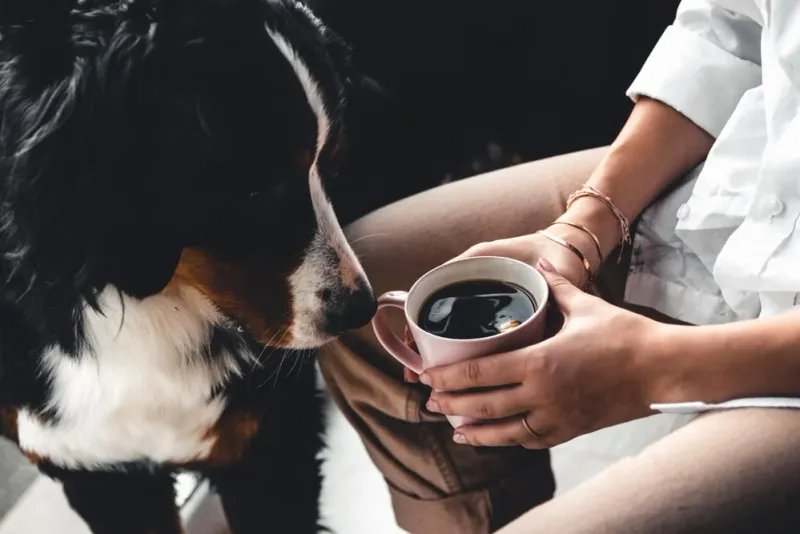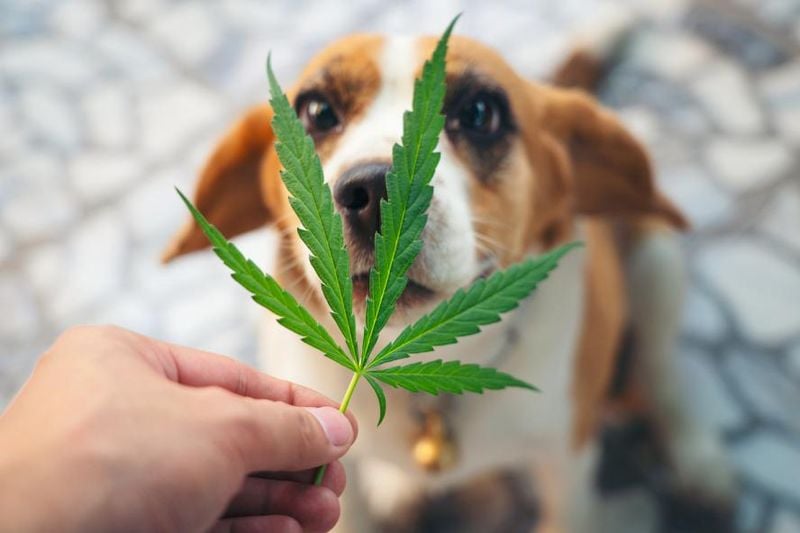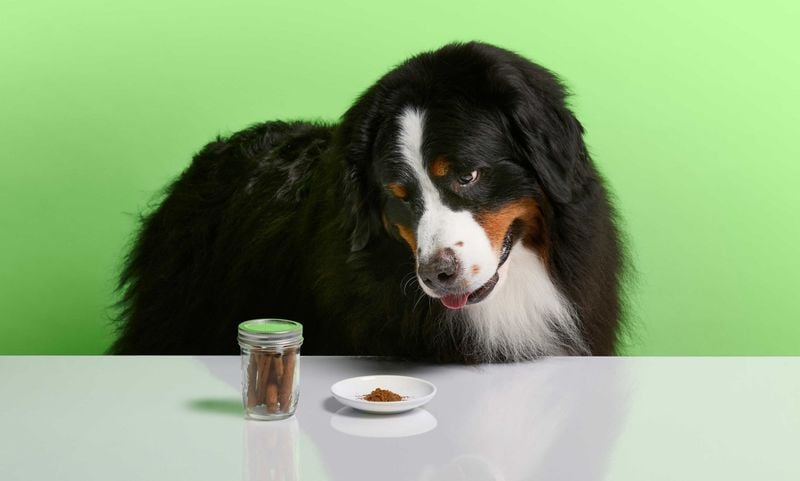25 Everyday Items That Could Poison Your Dog (And You Probably Have Them at Home)
Your dog might be your best friend, but your home could be full of things that don’t love them back.
From your kitchen pantry to your cleaning cupboard, danger might be lurking in the most innocent-looking items. And the worst part? Many of them are things we use or eat every single day.
Dogs are naturally curious, and their noses are powerful magnets for mischief. If something smells sweet, salty, or just a little unfamiliar, chances are they’ll try to lick it, chew it—or swallow it whole.
Unfortunately, what’s harmless to humans can be incredibly toxic to our four-legged companions.
You might already know that chocolate is off-limits, but what about grapes? Or that stick of sugar-free gum hiding in your handbag? Even things like onions, certain houseplants, and everyday medications can pose a serious risk.
Sometimes, a single bite is enough to send your pup straight to the emergency vet.
We’re not here to scare you—we’re here to help you stay informed and prepared. Knowing what to keep out of reach can mean the difference between a close call and a devastating accident.
Plus, once you know the red flags, you can dog-proof your home like a pro.
In this article, we’re walking you through 25 everyday items that are surprisingly toxic to dogs. Some might be obvious, but others will genuinely surprise you. Either way, you’ll come away with practical knowledge that could save your pup’s life.
Because when it comes to your dog’s safety, no detail is too small. Let’s dive into the hidden hazards—and learn how to keep those tails wagging safely for years to come.
1. Chocolate
While chocolate is a delightful treat for humans, it poses a significant danger to dogs. The culprit is theobromine, a compound similar to caffeine, which dogs metabolize slowly.
Even a small amount can lead to vomiting, diarrhea, and more severe symptoms like seizures or heart problems. Imagine a dog sneaking into a stash of chocolate bars – an innocent act that could turn alarming.
Different types of chocolate contain varying levels of theobromine, with dark chocolate being the most toxic. Always keep chocolate goodies out of your dog’s reach, and educate family members about its dangers.
If your dog does consume chocolate, it’s crucial to contact a vet immediately. Acting swiftly can make all the difference in ensuring your pet’s safety.
2. Grapes and Raisins
Grapes and raisins might seem like harmless fruits, but for dogs, they’re anything but. These seemingly innocent snacks can cause acute kidney failure in dogs, sometimes with a minimal amount consumed.
Mysteriously, not all dogs react the same way, making it even more perplexing for pet owners.
Symptoms like vomiting, lethargy, and a loss of appetite can appear within hours. It’s a chilling thought for any responsible pet owner who might unknowingly offer these toxic treats.
Ensuring that grapes and raisins are stored safely away from your pooch is essential. Vigilance is key. If you suspect your dog has consumed any, don’t wait for symptoms to develop—seek veterinary care right away.
3. Onions and Garlic
Onions and garlic may add flavor to our dishes, but they spell trouble for dogs. These kitchen staples contain compounds that can damage a dog’s red blood cells, causing a condition known as hemolytic anemia.
Even a small amount consumed regularly can lead to health issues. Picture your dog begging at the table, unaware that a bite of your onion-laden meal could be harmful.
Garlic is more potent than onions, but both should be off-limits to dogs. Always check ingredient lists, especially in sauces and seasonings, to ensure they’re free from these toxic items. Quick action and a vet visit are necessary if ingestion occurs.
4. Xylitol (found in sugar-free gum and candies)
Xylitol, a sugar substitute found in many sugar-free products, is extremely toxic to dogs.
Even a small amount can cause a rapid insulin release, leading to hypoglycemia (low blood sugar). Symptoms can include vomiting, loss of coordination, and even seizures, manifesting within minutes of ingestion.
Imagine your dog nosing through a purse and finding a pack of gum—innocent curiosity with potentially dire consequences.
To keep your furry friend safe, be vigilant about storing products containing xylitol out of their reach. If your dog accidentally ingests anything with xylitol, prompt veterinary intervention is crucial.
5. Alcohol
Alcohol is harmful to dogs in any form, whether it’s beer, wine, or spirits. Even small amounts can lead to alcohol poisoning in dogs, resulting in symptoms such as vomiting, coordination loss, and, in severe cases, central nervous system depression.
Picture a merry gathering where a curious dog laps up a spilled drink—what seems like an innocent mishap can be dangerous.
Dogs’ smaller bodies can’t handle alcohol like humans, making even tiny sips risky. Always ensure drinks are kept out of reach and clean up spills promptly.
If a dog consumes alcohol, immediate veterinary care is essential to prevent serious complications.
6. Caffeine (coffee, tea, energy drinks)
Caffeine is a stimulant that can severely affect dogs, similar to how it affects humans, but much more intensely. Found in coffee, tea, and energy drinks, caffeine can trigger restlessness, rapid breathing, heart palpitations, and muscle tremors in dogs.
Imagine your morning coffee routine interrupted by a furry friend taking a mischievous sip. While your caffeine fix might boost your day, it can pose a serious risk to your pet’s health.
Keep caffeinated beverages and products out of your dog’s reach. If accidental consumption occurs, contacting a vet promptly is crucial.
7. Avocados
Avocados are trendy and nutritious for humans but hazardous for dogs. They contain persin, a fungicidal toxin harmful to dogs, especially in large amounts. The entire plant, from the seed to the leaves, poses a risk, but the flesh is less toxic.
Picture a health-conscious dog owner accidentally dropping a slice of avocado, unaware of its potential danger.
Most dogs would need to eat a significant amount to be severely affected, but it’s best to avoid the risk entirely. Always keep avocados out of reach, and educate others about their potential harm to pets.
8. Macadamia Nuts
Macadamia nuts are delicious to humans but can be incredibly harmful to dogs.
Consumption can lead to macadamia nut toxicosis, resulting in symptoms like weakness, vomiting, and tremors. Even a small number of nuts can trigger adverse effects.
Imagine a dog owner enjoying a handful of these nuts, only to have their pet snatch a few right from their hand.
It’s crucial to keep these nuts securely stored away from curious noses. If your dog does get into macadamias, contact your veterinarian right away to ensure their safety.
9. Cooked Bones (especially chicken bones)
Cooked bones, particularly chicken bones, are a common hazard for dogs. Unlike raw bones, cooked bones can splinter easily, posing a risk of choking or causing damage to the digestive tract.
Picture a family dinner where a dog is eyeing those leftovers, unaware of the potential danger.
The temptation to toss a bone to a begging dog is strong, but it’s best avoided.
To keep your pet safe, dispose of cooked bones properly and offer safer chew alternatives. If you suspect your dog has ingested a cooked bone, monitor for signs of distress and contact your vet for guidance.
10. Raw Yeast Dough
Raw yeast dough, often used in baking, poses a unique danger to dogs. If ingested, the dough can expand in the stomach, causing pain and potentially dangerous bloating. As it ferments, it also releases alcohol, which is toxic to dogs.
Imagine kneading bread dough, only to have your curious pet sneak a taste. What seems like harmless dough can quickly become a severe health risk.
To prevent such incidents, keep raw dough out of reach and educate family members about its potential dangers. If ingestion occurs, a prompt visit to the vet is necessary.
11. Blue Cheese and Other Mouldy Cheeses
Blue cheese and other moldy cheeses may be gourmet delicacies for humans, but they’re dangerous for dogs. The mycotoxins present can lead to muscle tremors and seizures in dogs, making these cheeses a risky indulgence.
Picture a cheese enthusiast accidentally dropping a piece of blue cheese, unaware of its potential harm to their furry friend.
It’s essential to keep such cheeses safely stored away. If your dog consumes moldy cheese, contact a veterinarian immediately to ensure their well-being.
12. Medications (Ibuprofen, Acetaminophen, etc.)
Medications like ibuprofen and acetaminophen, safe for humans, can be lethal to dogs.
These drugs can cause stomach ulcers, kidney failure, and liver damage in pets. Imagine a pet owner accidentally dropping a pill bottle, leading to a curious pet’s investigation.
It’s crucial to store medications securely and be mindful of any pills that may fall.
If your dog ingests human medication, contact a vet immediately. Prompt intervention is necessary to minimize potential harm.
13. Cannabis (edibles or plant material)
Cannabis, whether in edible form or as plant material, can be toxic to dogs. The psychoactive compounds can lead to symptoms like lethargy, disorientation, and in severe cases, seizures.
Picture a dog owner enjoying cannabis treats, unaware that their pet might be tempted to partake.
Dogs’ curious nature can lead them to consume things they shouldn’t. To keep your pet safe, store cannabis products securely out of reach.
If ingestion occurs, seek veterinary care immediately to address any potential effects.
14. Nicotine (cigarettes, vapes, patches)
Nicotine, found in cigarettes, vapes, and patches, is highly toxic to dogs. Even small amounts can cause vomiting, increased heart rate, and, in severe cases, seizures or death.
Imagine a dog owner dropping a cigarette pack, leading to unwanted curiosity from their pet.
Ensuring that nicotine products are kept out of reach is vital for pet safety.
If you suspect your dog has ingested nicotine, it’s imperative to contact a veterinarian immediately for guidance.
15. Cleaning Products (bleach, disinfectants)
Cleaning products, from bleach to disinfectants, contain chemicals harmful to dogs. These substances can cause irritation, vomiting, and respiratory issues if ingested or inhaled.
Consider a curious dog sniffing around during cleaning time, unaware of the hidden dangers.
It’s essential to use pet-safe cleaning products and keep all cleaning agents well out of reach.
If your dog comes into contact with or ingests cleaning products, consult a vet to ensure their safety and health.
16. Pest Control Baits and Rodenticides
Pest control baits and rodenticides, while effective for pests, are extremely toxic to dogs. These substances can cause internal bleeding and organ failure if ingested.
Picture a dog exploring a garden where rodenticide has been placed, unaware of the serious risk.
It’s crucial to use these products with caution, ensuring they’re out of reach of pets.
If you suspect your dog has consumed rodenticides, immediate veterinary attention is necessary to prevent severe health complications.
17. Antifreeze (even in small amounts)
Antifreeze, even in small amounts, is highly toxic to dogs. The sweet taste makes it appealing, but ingestion can lead to kidney failure and death if not treated promptly.
Picture a garage where a dog finds an unattended antifreeze bottle, unaware of the danger lurking.
Taking precautions by storing antifreeze securely and cleaning any spills immediately is vital.
If your dog ingests antifreeze, seek veterinary care without delay to mitigate serious health risks.
18. Toothpaste (especially those with xylitol)
Toothpaste, especially those containing xylitol, is not meant for dogs. Xylitol can cause a rapid insulin release, leading to hypoglycemia. Picture a dog owner brushing their teeth, unaware of the potential danger lurking in a curious pup’s reach.
It’s essential to use pet-specific toothpaste and keep human toothpaste safely out of reach.
If your dog ingests human toothpaste, seeking veterinary advice promptly is crucial for their health.
19. Certain Essential Oils (like tea tree, eucalyptus)
Certain essential oils, such as tea tree and eucalyptus, can be toxic to dogs. Ingestion or skin exposure can lead to symptoms like drooling, lethargy, and respiratory issues.
Imagine a relaxing aromatherapy session with essential oils, not realizing your dog’s curiosity might bring them too close.
To ensure safety, use oils in diffusers where pets can’t access them, and store all oils out of reach.
If your dog comes into contact with toxic oils, consult a vet immediately for the best care.
20. Fabric Softener Sheets
Fabric softener sheets, often used for laundry freshness, contain chemicals harmful to dogs. Ingestion can lead to gastrointestinal obstruction and irritation. Imagine fresh laundry day with a curious pup intrigued by the scent of a used fabric softener sheet.
To prevent mishaps, dispose of sheets securely and out of reach of pets.
If your dog ingests or chews on a sheet, consulting your vet is necessary to ensure their health and safety.
21. Batteries (especially small button ones)
Batteries, particularly small button ones, pose a severe risk to dogs. Ingestion can lead to chemical burns or heavy metal toxicity. Picture a curious pet finding a stray battery on the floor, unaware of the danger it presents.
To prevent accidents, keep all batteries securely stored and dispose of them properly.
If you suspect your dog has swallowed a battery, immediate veterinary care is essential for their well-being.
22. Mushrooms (wild or toxic household types)
Mushrooms, whether wild or certain toxic household types, can be hazardous to dogs.
Ingestion can lead to symptoms ranging from mild gastrointestinal upset to severe organ failure. Consider a walk in the woods where a dog finds wild mushrooms, not realizing the risk.
It’s vital to supervise dogs during outdoor activities and know which mushrooms are growing in your area.
If you suspect mushroom ingestion, contact a vet immediately to ensure your dog’s safety.
23. Compost or Mouldy Food Waste
Compost piles and mouldy food waste can be inviting but dangerous for dogs. These materials often contain harmful bacteria and mycotoxins that can lead to vomiting, tremors, and seizures.
To protect your pet, ensure compost bins are secure and inaccessible.
If your dog ingests compost or mouldy waste, seek veterinary care promptly to address potential health concerns.
24. Human Food Seasonings (like salt, nutmeg, and chives)
Human food seasonings such as salt, nutmeg, and chives can be toxic to dogs. These seasonings can cause symptoms ranging from mild gastrointestinal upset to severe toxicity.
To ensure safety, keep spices out of reach and avoid sharing seasoned foods with dogs.
If your dog ingests harmful seasonings, consulting a vet promptly is necessary for their well-being.
25. Certain Houseplants (like lilies, sago palm, aloe vera)
Certain houseplants, including lilies, sago palm, and aloe vera, can be toxic to dogs. Ingestion can lead to symptoms ranging from mild irritation to severe organ failure. Picture a home filled with greenery, unaware of the potential danger to curious pets.
To keep your dog safe, research and choose pet-friendly plants, and place toxic varieties out of reach.
If your dog ingests any harmful plants, contact a veterinarian immediately for guidance.































